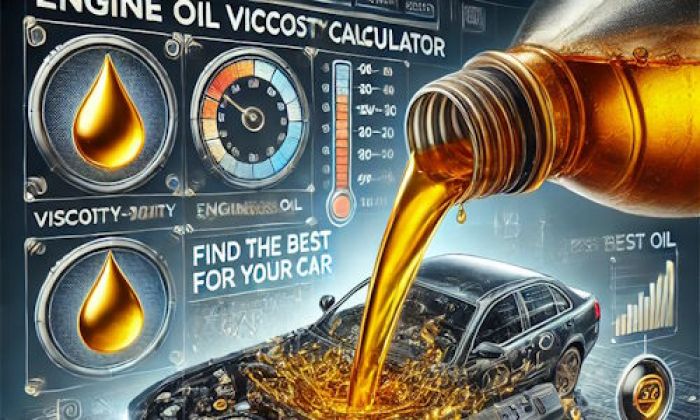Although the small-sedan class is thought stagnating and even falling now, Mercedes-Benz keeps manufacturing about half a million C-Class sedans every year and selling them all over the planet. In the US, they sell about 60,000 to 80,000 C-Class sedans a year which makes this car one of the most popular luxury compact sedans in the country.
Today, I want to tell you more about the 2.0L Turbo engine available in the C 300 and C 300 4Matic trims in the Mercedes-Benz C-Class. This engine was introduced in the 2022-year model of the C-Class and the world still doesn't know a lot about it. But I have something to say about the main engine powering the W206 generation of the C-Class.
.jpg)
Key features and my opinion about the engine
- Production years:2020-now
- Average lifespan of M254:160,000-190,000 miles
- Fuel supply type:direct injection
- Power range:258 hp
- Fuel efficiency:good
- Engine block material:aluminum
- Engine reliability score:medium
- The most common problems:Camtronic problems, carbon buildup on intake valves, knocking with low-octane fuel.
What should you know about the engine in the C 300 trim of the C-Class?
So, the C-Class sedan is available in the US with basically two engines. The first one powers the C 300 and C 300 4Matic trims while the second is the high-performance mild-hybrid engine for the AMG trim. They are both 2-liter gasoline engines but they have a lot of differences, so I'll try to cover the AMG engine in one of my next articles.
The C 300 engine is available with rear-wheel drive or all-wheel drive (4Matic), it's really good to drive, and people say it's super durable compared with other engines of the kind (2.0 TFSI in Audi or 2.0 Turbo 330i in BMW). But I wouldn't make such conclusions before I have a look at all the sides and hidden features of the engine.
Let's see the important features and specs:
- this is the 2.0L gasoline turbocharged 4-cylinder engine codenamed M254 E20 that offers 255 horsepower and 295 lb-ft of torque;
- the engine is a mild-hybrid powerplant that features the ISG 48V technology (starter-generator with a small battery);
- the engine was first shown in 2020 and has only been used in the C-Class as of now;
- this is a direct-injection engine, its timing system is driven by the chain, the block and the head are made of aluminum;
- the cylinders are covered with special anti-friction material that claims to enlarge the lifespan of the engine;
- the camshafts are governed by the Camtronic phaser which proves to be really efficient and pretty reliable;
- the engine is coupled with a 9-speed 9G-Tronic automatic transmission made by Mercedes - a really good unit for this car;
- the gas mileage is rated at 25 MPG in the city and 35 MPG on highways for the RWD version, the all-wheel drive will give you 2 MPG less than that.
So, these are the key features of this technological and up-to-date engine powering the new C-Class. Now, it seems like a very decent unit for this car and it actually is. But I still managed to find some pinch of salt to add to my review. I still believe that there are no technologies without common issues and disadvantages.
But I have to say that driving the Mercedes C-Class powered by this engine is a lot of fun. The powerful engine gives you a lot of torque which is improved by the mild-hybrid system and the car seems crazy when you are accelerating. So, there are no problems with power and response.
How long will this engine last?
The M254 E20 engine doesn't seem to be the most durable Mercedes engine you've seen in your life. It has quite a lot of new technologies and it's hard to understand when they will fail and require expensive repairs. The mild-hybrid system, the updated Camtronic, the cylinder coating, etc. - everything leads to questions.
I believe the average lifespan of this engine should be stated as 170,000 miles. It's not a lot compared to older bulletproof Mercedes engines but it's not bad at all if you look at counterparts.
I believe Mercedes isn't really glad with the engine because they were going to use it in the E-Class but then, at the last moment, they changed their mind. I understand that they just don't want to risk the durability of the engines they offer in the E-Class in Europe, so they switched to more understandable and actually older units.
But you should take this section of the article as my pure guess. Although I know about Camtronic problems and intake valves issues in this engine, I can still not know for sure how they will work in this exact engine model because it's new and I can't find any M254 E20 engine with high mileage on it.
What are the common problems with the C-Class engine?
So, the base engine for the C-Class is new but specialists can already outline some problems that are waiting for the majority of its owners in the future. I'm sure the engine will not be very problematic and it will fail at really high mileage only. If you keep driving it carefully and provide it with good maintenance, you will most likely sell this car after 5-7 years without repairing anything serious in the engine.
But here are some common problems you can expect:
1. Camtronic problems
The camshaft adjuster solenoid may fail at about 100,000 miles and it's really hard to restore. Replacing this solenoid may cost you a lot because of the huge prices for OEM parts. But this is the only thing that can happen with this engine prior to it hitting the 100,000-mile mark. At least, if you don't kill it with your driving style.
The primary reason for Camtronic to malfunction is dirty oil. So, proper oil changes and high-quality oil filters will help you keep the Camtronic in good condition and prevent the failure of the camshaft adjuster solenoid for a longer time.
2. Engine knocking with bad fuel
This engine requires only high-quality and high-octane fuel, so only use premium and buy it in trusted places. Bad fuel will cause knocking because of the detonation of the unburnt fuel and this is a common problem for almost all M-Series engines in Mercedes vehicles.
This detonation may also cause problems with quite tender parts of the engine. One more bad thing it can cause is the premature death of your catalytic converter. Its replacement will cost you a fortune.
3. Intake valves buildup problems
The direct injection system is not really problem-free. This engine doesn't have any port injectors which is a strange decision. The fuel doesn't pass the intake valves and they get some carbon buildup after 30-40 thousand miles. Also, the injectors themselves work in high temperatures and won't survive for a long time.
Unfortunately, cleaning valves and replacing fuel injectors in these engines will not cost you a little money. Actually, any repair in a Mercedes car is expensive. So, it's a pity that the injection system in the C-Class 2.0L Turbo engine may cause issues and requires maintenance.
4. Early death if used aggressively
These engines will start burning oil and overall showing lots of minor problems if they are driven aggressively. If you want a sport-oriented car, then you may find it reasonable to buy the AMG C 43 version of the C-Class. The C 300 type of engine is made for average driving and it won't be OK if you drive it aggressively or use it for racing.
Oil consumption will grow and lead to low oil levels, poor lubrication, overheating, etc. These problems will trigger other major issues and the engine won't even last 100,000 miles. Also, poor maintenance can cause the same problems.
How can you prolong the life of your C-Class engine?
This M254 E20 engine's lifespan depends highly on the quality of maintenance. OEM oil and filters, high-quality parts, good fuel, and attention to any minor problems are the most important factors. Also, forget about pressing that gas pedal to the floor too often.
Here are some specific things you may want to do to prolong the life of your Mercedes C-Class:
- check the oil level at least once a month to make sure the car doesn't burn much oil;
- don't ignore error messages even if they disappear after some time;
- use premium fuel only;
- have the Camtronic inspected at about 100,000 miles;
- check the timing chain at 100,000 miles and then every 20,000 miles, replace it when rattling is detected.
Final thoughts
To sum up, I want to say that this is one of the best 2-liter turbo engines in modern compact sedans in the luxury class. I still don't know if the Audi TFSI engine is better than the C 300 engine in the C-Class. They are alike, but the Mercedes engine is more powerful, has more modern technologies, is more fuel efficient, and also proves to be more reliable when it comes to different minor problems.
Although I still have some doubts when it comes to longevity, I would buy the C-Class powered by this engine without thinking twice.
About the authors
The CarAraC research team is composed of seasoned auto mechanics and automotive industry professionals, including individuals with advanced degrees and certifications in their field. Our team members boast prestigious credentials, reflecting their extensive knowledge and skills. These qualifications include: IMI: Institute of the Motor Industry, ASE-Certified Master Automobile Technicians; Coventry University, Graduate of MA in Automotive Journalism; Politecnico di Torino, Italy, MS Automotive Engineering; Ss. Cyril and Methodius University in Skopje, Mechanical University in Skopje; TOC Automotive College; DHA Suffa University, Department of Mechanical Engineering






Add comment